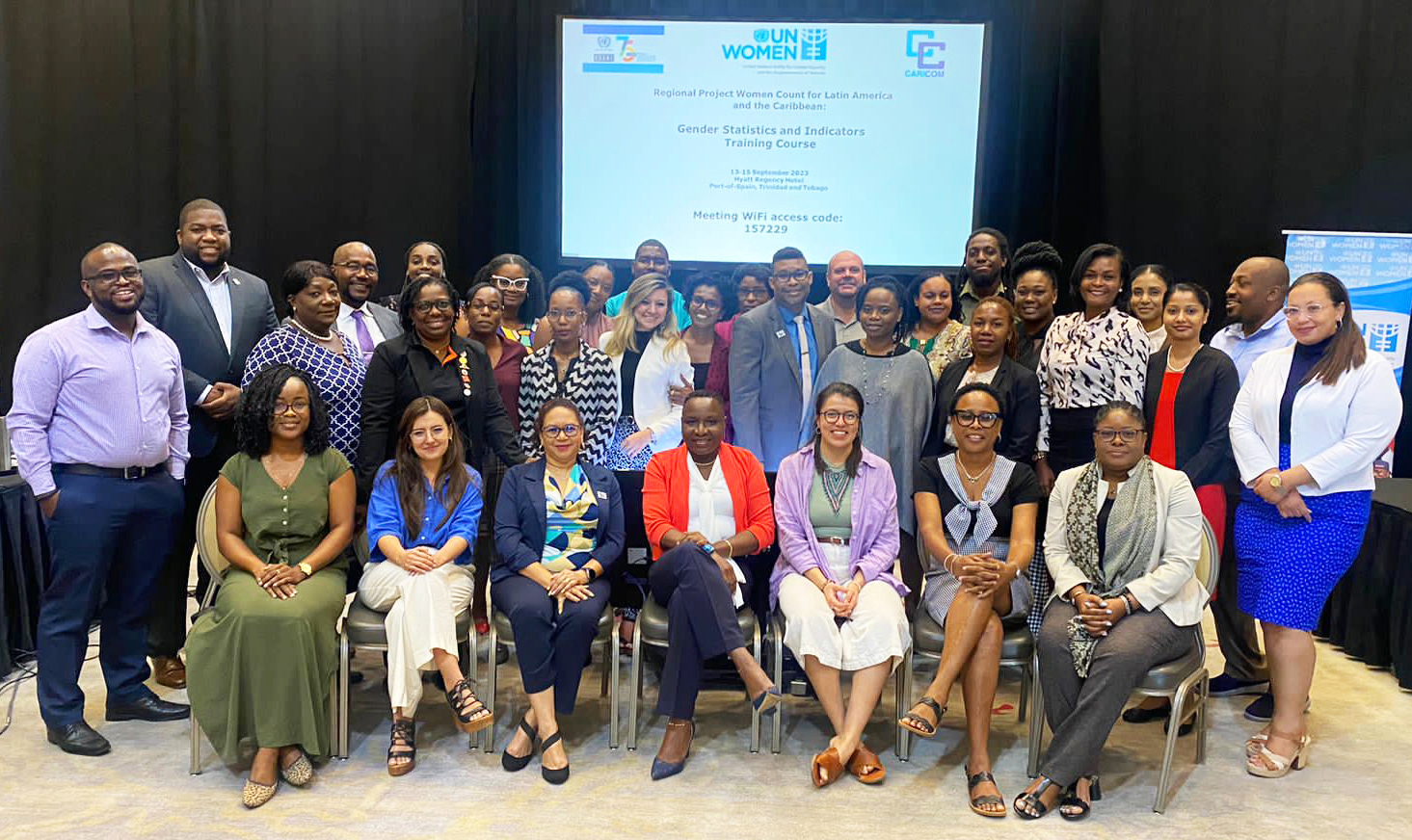Training on gender statistics with staff of national statistical offices and machineries for the advancement of women for better equality policies
Work area(s)
The Economic Commission for Latin America and the Caribbean (ECLAC), together with UN Women and CARICOM, held the first part of the Gender Statistics and Indicators course from 13 to 15 September in Port of Spain, Trinidad and Tobago. The course was attended by 29 representatives of national statistical offices and machineries for the advancement of women from member and associate countries.

From September 13th to 15th, the Division for Gender Affairs, the Statistics Division and the ECLAC Subregional Office for the Caribbean, together with UN Women and CARICOM, organized the first phase of the course on Gender Statistics and Indicators for the Caribbean, in Port of Spain. The course, designed to be carried out in two phases, has as its main objective to strengthen the capacities of producers and users of statistics and indicators by incorporating a gender perspective for the formulation, monitoring and evaluation of public policies for gender equality. The second phase of the course is being conducted virtually between October and December of this year.
During the three days of in-person sessions in Port of Spain, participants viewed material related to the conceptual framework of gender statistics and indicators in Latin America and the Caribbean, including women's autonomy and the structural challenges of gender inequality, gender mainstreaming in the statistical process, dissemination and communication of data and information, among other topics. It was especially important to highlight key concepts such as the difference between sex and gender, gender indicators, intersectionality, among others, and to highlight the importance and concrete actions to achieve gender mainstreaming throughout the statistical process.
Valuable tools were shared such as the Methodological Guide on time use measurements in Latin America and the Caribbean; the document developed by ECLAC and presented at the XV Regional Conference on Women in Latin America and the Caribbean titled "Breaking the statistical silence to achieve gender equality by 2030" and included a presentation by INEGI on the Guide for gender mainstreaming in statistical production, a document recently presented at the XXIV International Meeting on Gender Statistics in Aguascalientes, Mexico and subsequently approved at the XII Meeting of the Statistical Conference of the Americas to be adopted as a regional standard.
Karen García, Statistician in the Division for Gender Affairs, presented key indicators in the region in terms of economic, physical and decision-making autonomy, according to the official information reported and processed by ECLAC's Gender Equality Observatory for Latin America and the Caribbean. The joint analysis with the participants showed that the Caribbean sub-region has made significant progress in the production and reporting of indicators on physical autonomy and decision-making, but there is still a lack of periodic information for the reporting of economic autonomy indicators. In addition, ECLAC's sub-regional headquarters presented data and information on gender gaps in education and employment in the Caribbean. ECLAC also presented the proposal to advance towards a care society paradigm that puts care and sustainability of life at the centre, highlighting the importance of measuring time use for achieving this transition, in line with the Buenos Aires Commitment (2022).
The course also included interactive and group activities, promoting dialogue and reflection among participants and the different countries represented in the course. During the last session, CARICOM Director Halim Brizan gave a presentation on the experiences of time use measurements in some Caribbean countries. Following this intervention, representatives from Dominica, Monserrat, Grenada, and Trinidad and Tobago, shared information on these experiences and processes to take the first steps towards generations of time use measurements, explaining what questions were incorporated in their surveys, what type of surveys were used, the challenges they faced and what is expected in the coming years in terms of these measurements.
The course gathered more than 29 participants from 17 countries in the sub-region for its in-person phase, with more than 40 people in the second virtual phase. The virtual course includes the presentations of the in-person phase, plus 7 in-depth modules, additional resources, access to two seminars, and a final evaluation. Upon completion, participants will receive a certificate accrediting their participation in the course.
Country(ies)
-
Trinidad and Tobago
